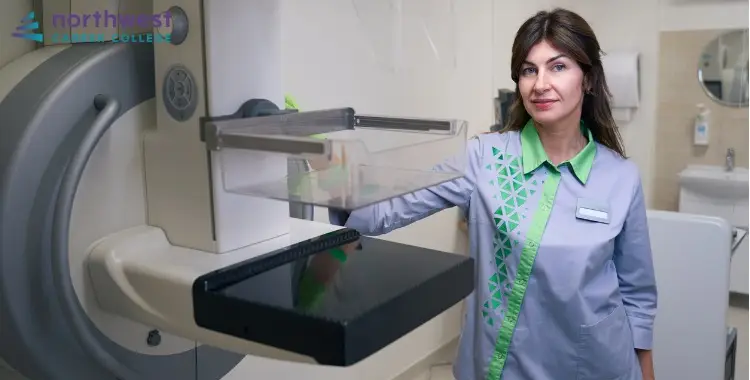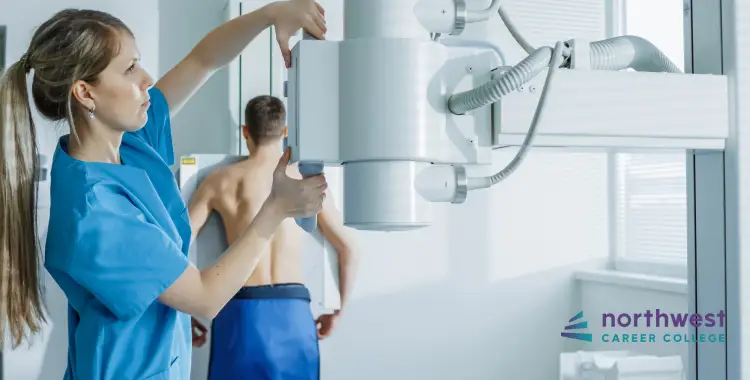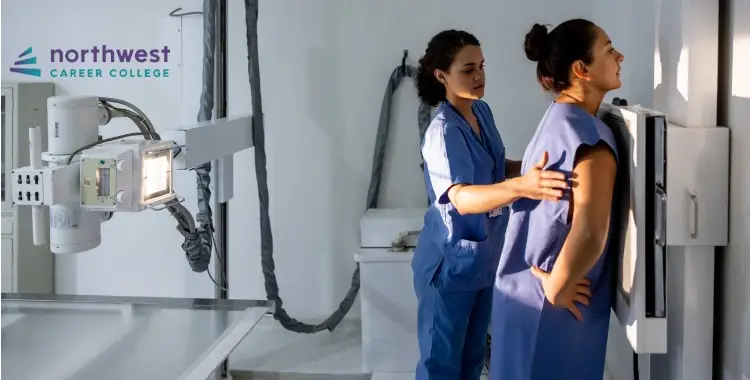Will Radiography Technologist Still Have a Job in Ten Years?
- Radiography
- October 7, 2024
- 1.6k views
- 5 min read

Radiography technicians, most commonly known as radiologic technologists, are health professionals who take pictures using imaging equipment inside the human body. These pictures help other physicians diagnose and treat various conditions in patients. However, with the rapid advancement in technology, many people question the viability of this career in the future.
According to a study from the Bureau of Labor Statistics, the employment rate for a Radiography Technician can be expected to grow by 6.3% from 2021 to 2031. Based on this study, the demand for this professional role will continue to dominate in the healthcare industry.
However, with the continuous development of AI and advanced technology, some questions remain about whether this role will be replaced in the coming years. Let’s try to digest some good thoughts about this.
Table of Contents
The Role of a Radiography Technician
Radiography technicians work in hospitals, clinics, and other medical facilities. Using X-ray machines, MRI scanners, and other imaging technologies, they create images of bones, tissues, and organs upon which physicians base essential decisions on patient care.
A radiography technician needs to be proficient in using highly sophisticated machinery taking proper care of themselves and their patients by keeping them safe from radiation. This is also communicative work because they often have to deal directly with patients who feel apprehensive about procedures.
Advances in Medical Technology
One of the main concerns regarding the radiography technician’s future is the rapid development that is continuing within medical technology. While medical technology is becoming increasingly advanced and most tasks are automated, a technician will be required to operate these machines while assuring patient safety.
While modern technologies may lighten some of these aspects, no new technology will replace the professionally trained technician who needs to handle complex equipment and make quick decisions in a medical setting. With changing imaging technology, a radiography technician should keep up with the latest developments to deliver optimum care.
Increasing Demand for Healthcare Services
Another reason radiography technicians will continue to have jobs in ten years is due to the growing need for health care services. The population is growing and aging, thus increasing medical needs that involve imaging diagnostics and treatments for disorders such as broken bones, cancers, and heart diseases. This creates a continued demand for skilled radiography technicians to conduct these tests in hospitals, clinics, and other health institutions.
Reasons for Growing Demand:
- Medical imaging is in high demand for the aged population.
- Increased access to health care services.
- Medical imaging technology advances place increasing demands on the skills of operators.
Chronic diseases such as diabetes and heart disease are also on the rise, further increasing demand for diagnostic imaging. More people in doctor’s offices means radiography technicians will, in turn, become involved in helping doctors arrive at proper diagnoses and offering appropriate treatments.
Job Security and Prospects
Employment opportunities for medical imaging technologists are very stable and are likely to see great demand. Demand for imaging services due to aging in the population will ensure that hospitals, outpatient care centers, and other medical facilities employ more technicians.
Additionally, the many options for specialization, like MRI or CT scanning, will also extend occupation opportunities for the radiography technician.
It is also possible for a radiography technician to further their careers by becoming a supervisor or instructor of radiography. Others undergo further training and then enter other related medical fields, such as radiation therapy or medical imaging.
Radiography Technicians in Rural Settings
Another reason radiography technicians will always be in demand is the need for healthcare in rural settings. Many rural communities lack medical care, and radiography technicians make sure that patients in these areas receive the diagnostic imaging they need. While telemedicine and other forms of remote health options continue to grow, technicians will still be needed to run equipment in rural hospitals and clinics.
Continuous Learning and Training
The future of keeping radiography technicians employed relies on the requirement for continuous learning. With ever-changing medical technologies, technicians will be in the position to continuously learn about new advancements and best practices in the field. Ongoing education and training are integral to ensuring job security and providing good care.
The radiography program technician at Northwest Career College provides practical training and the latest information to prepare the graduate for the future of medical imaging.
Conclusion
Radiography technicians will play an important role in the healthcare system over the coming ten years. With the rise of medical imaging services, improvement in technological aspects, and even improvement in health needs in rural areas, the professional services rendered by radiography technician are in great demand. This is indeed a well-paying and stable career, with promising prospects for development and the possibility of working with advanced medical technology.
If you are one of them and want to be a radiography technician, visit Northwest Career College today and enroll in our Radiography Program. You can graduate in as little as 18 months with financial aid available.




